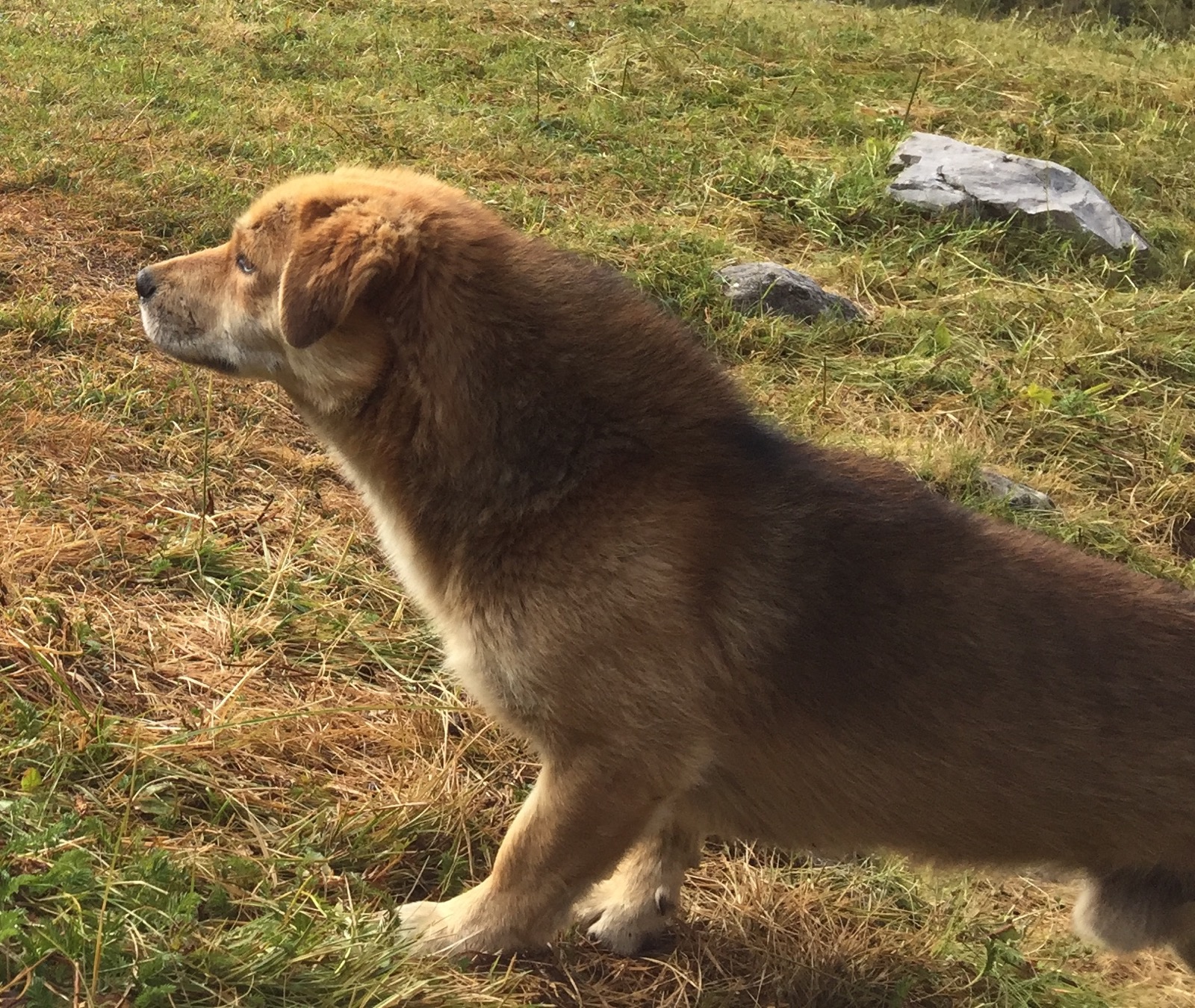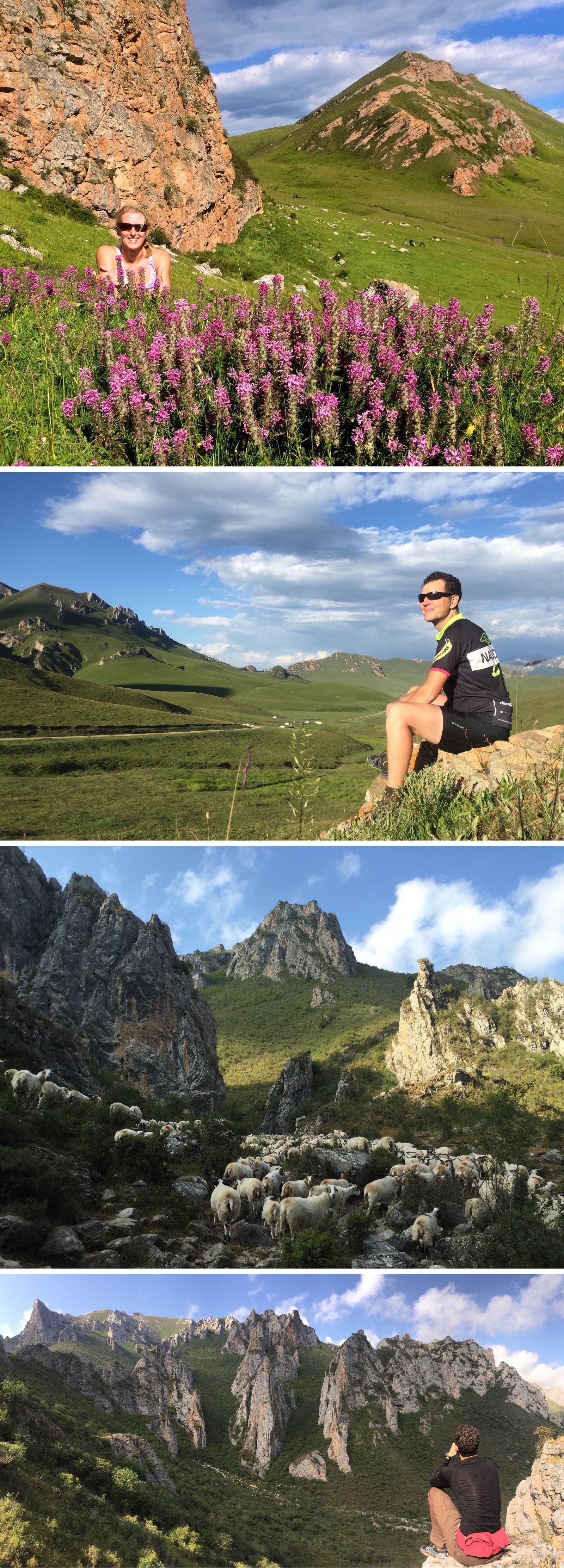From Jiuzhaigou, we headed north for one last short overland trip within mainland China before crossing into Tibet. Our destination was Xining, where we would catch the long overnight train to Lhasa. To get there, we had a string of bus rides through the mountains and up to the edge of the Silk Road, where native Tibetan, Muslim, and Han Chinese populations all mix.
Our favorite stop along the way was Langmusi. This northern town sits on top of the Tibetan plateau. Although not in Tibet by provincial designation, its geography is unmistakably TIbetan: it sets nestled among rolling green hills at nearly 11,000 feet. All around town, dramatic rock formations rise above the lush pastures. It looked as if a thick green blanket had been spread over grand mountains, only to have their peaks and serrated edges poke through.
After a gorgeous bus ride from Jiuzhaigou, the bus dropped us off on the side of the highway at the junction to Langmusi, still about a twenty minute walk away from town. We’d barely put on our packs, before a kind family from Lanzhou picked us up, and insisted on driving us right to the front door of our hotel.
We had hoped to explore the plateau on horseback, but had too little time. Instead, we set off on mountain bikes the afternoon we arrived, climbing an unpaved road out of Langmusi to incredible views of mountains on the horizon.
We felt giddy under the blue skies that had escaped us for much of our Sichuan bike trip. We climbed one more long ascent, finding an enormous herd of sheep and yaks grazing at the top. There was something magical about their vast numbers against such a vast landscape. Locals on horseback rode amongst their animals on a far hill. The sun was setting as we coasted back into town; the red stone mountain glowed as if on fire.
The next morning we headed out for a trail run up nearby Namo Gorge. At many points, the trail proved too steep and rocky to run, but the gorge and valley it spilled into were awesome. After passing a few noisy Chinese groups at the entrance, we quickly had it nearly all to ourselves.
Our one ever-present companion was a small golden dog that scouted the way just ahead of us. There were many moments when we thought we had lost him, only for him to race past us and once again lead the way. Remind you of anyone?
 Indy’s Chinese cousin?
Indy’s Chinese cousin?
We also came across two shepherds just as their flock was pushing through the gorge’s narrowest opening, with rocks towering on either side. To their amusement, we followed the animals as they grazed their way up the valley.
At last, we had to bid farewell to Longmusi. Two buses and short train ride later, we arrived in Xining with enough time to explore the city for a few hours before our train to Lhasa. With a significant Muslim population, Xining has a very different feel than other Chinese cities we visited - and it gave us a taste for China’s vast northwest, which borders on Mongolia to the North and Kazakstan to the West.
The streets near Xining’s big Dongguan Mosque sell prayer rugs and hajibs. The market was bustling and full of laughter on Friday night; from its many stalls we bought fresh bread, fruit, walnuts, and handmade yogurt for the long train trip ahead. We had a quick dinner of the region’s characterstic beef noodles, and then headed back to the train station to begin our journey to Lhasa.
Photos
